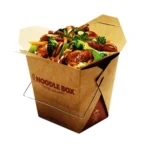Securing a mobile food vendor license in NYC can be a daunting process, but with the right guidance, you can navigate it efficiently. In this comprehensive guide, we will walk you through each step to ensure you understand the requirements and procedures involved. We aim to provide you with a clear roadmap to obtaining your license, allowing you to focus on bringing your culinary delights to the streets of New York City.
Understanding the Basics
What is a Mobile Food Vendor License?
A mobile food vendor license is required for any individual or business that intends to sell food from a cart, truck, or other mobile units in New York City. This license ensures that vendors comply with local health and safety regulations, providing consumers with safe and quality food.
Types of Mobile Food Vendor Licenses
In NYC, there are several types of mobile food vendor licenses, each catering to different needs:
- Full-Term License: Valid for two years and renewable.
- Seasonal License: Valid for specific months, typically from April to October.
- Temporary License: Issued for special events or limited-time operations.
Understanding which license suits your business model is crucial before proceeding with the application.
Step-by-Step Guide to Obtaining Your License
Step 1: Food Protection Course
Before applying for a license, you must complete a food protection course offered by the NYC Department of Health and Mental Hygiene (DOHMH). This course covers essential food safety practices and is mandatory for all prospective vendors.
Step 2: Pass the Certification Exam
You must pass the certification exam after finishing the course. The exam tests your knowledge of food safety regulations and practices. Upon passing, you will receive a Food Protection Certificate, which is a prerequisite for the license application.
Step 3: Business Registration
Create an account with the NYC Department of Consumer Affairs (DCA) for your business. This step involves providing detailed information about your business structure, ownership, and operation plans. Ensure you have all necessary documentation, including proof of identity and business address.
Step 4: License Application
Submit your mobile food vendor license application to the DOHMH. The application process includes:
- Application Form: When completing the application, give accurate information.
- Required Documents: Provide copies of your Food Protection Certificate, business registration, and any other required documents.
- Application Fee: Pay the non-refundable application fee, which varies depending on the type of license.
Step 5: Health and Safety Inspection
Once your application is reviewed and approved, you will need to schedule a health and safety inspection of your mobile food unit. The inspection ensures that your equipment meets all health and safety standards set by the DOHMH. Be prepared to make any necessary adjustments or improvements based on the inspector’s feedback.
Step 6: License Issuance
Upon passing the inspection, you will be issued your mobile food vendor license. Keep this license displayed prominently on your mobile food unit at all times while operating.
Additional Considerations
Location Permits
In addition to the mobile food vendor license, you may need location permits to operate in specific areas of NYC. These permits are often required for high-traffic or restricted zones. Check with local authorities to determine if you need additional permits for your desired vending locations.
Renewal and Compliance
Stay informed about the renewal process for your license. Full-term licenses need to be renewed every two years, and seasonal licenses require annual renewal. Maintain compliance with all health and safety regulations to avoid penalties or revocation of your license.
Tips for Success
- Stay Updated: Regulations can change, so stay informed about any updates or changes in licensing requirements.
- Network with Other Vendors: Join local vendor associations to gain insights and support from experienced vendors.
- Prioritize Cleanliness: Ensure your mobile unit is always clean and well-maintained to pass inspections and attract customers.
Conclusion
Obtaining a mobile food vendor license in NYC requires careful planning and adherence to regulations. By following this comprehensive guide, you can navigate the process with confidence and focus on what you do best: delivering delicious food to the vibrant streets of New York City. For those looking to expand their operations beyond NYC, the procedures may differ slightly for obtaining a mobile food vendor license in NYS, so it’s important to research the specific requirements for other areas within the state.





